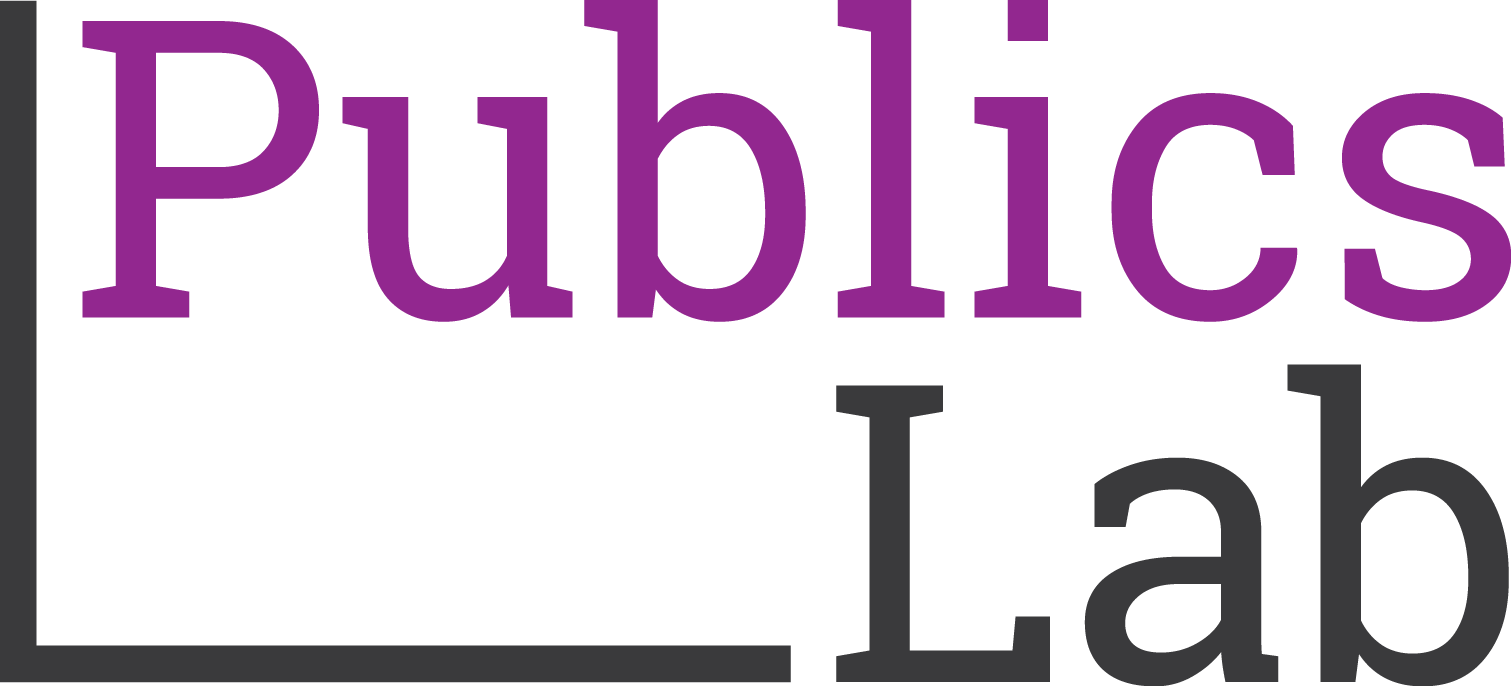Date/Time
Date(s) - 02/15/2022
6:00 pm - 7:15 pm
Categories

Libraries are places of refuge in times of crisis. As we confront conspiracy theories, misinformation, political unrest, violence, and ongoing systemic failures, we turn to libraries for reliable information, pedagogy, activism, and community. Responding to urgent needs, library professionals are fighting to address the barriers that prevent marginalized communities from accessing library resources. Like radical activist and librarian Audre Lorde, these information professionals recognize libraries as spaces for organizing and challenging the ways that current social infrastructures work for and against people. As such, they are confronting the ways that library classification systems reflect and reinforce systems of power outside of library walls and developing tools to help create more accessible and equitable libraries.
This panel features librarians, library workers, and curators who will discuss the role of social justice in their work and share insights into social justice initiatives that are being led by the library profession. Panelists will discuss the exciting ways that libraries are currently incorporating social justice practices into their work through:
- critical cataloging
- critical information literacy
- classification work
- anti-racist pedagogy
- the development of open educational resources
- community engagement
- collaboration with instructors
- immigrant representation in library systems, and more.
Panelists will also address misconceptions about libraries and shed light on the often invisible labor, advocacy, critical thinking, and care involved in librarianship. Following in Lorde’s footsteps, these panelists are breathing new life into library spaces and ensuring that we all have access to the information resources we need now and in the future. As a culture, we are familiar with the idea that libraries are essential to a healthy democracy. This panel will examine the role of libraries in creating not only an equitable society, but a better world.
RSVP for the panel by registering via Zoom! If you have any accessibility needs for this event, please email us at publicslab@gc.cuny.edu.
The PublicsLab thanks Madeleine Barnes for her work in organizing this event.
Panelists
 Nic Caldwell (he/they) is a Curatorial Fellow at The Morgan Library and Museum working in the Printed Books and Bindings department. Nic is a 2021 graduate of the NYU Dual Degree program, with a Masters in English Literature and Library and Information Science. His approach to library work is to challenge the boundaries of who has access to knowledge, who creates history, and whose stories get to be told. He is particularly interested in how archives and special collections can be made more accessible to marginalized communities. He is also personally invested in reducing barriers for graduate students of color in the information field. At the Morgan, he is currently curating an exhibition on the American poet Gwendolyn Brooks and transcribing letters of The Morgan’s first director, Belle Da Costa Greene.
Nic Caldwell (he/they) is a Curatorial Fellow at The Morgan Library and Museum working in the Printed Books and Bindings department. Nic is a 2021 graduate of the NYU Dual Degree program, with a Masters in English Literature and Library and Information Science. His approach to library work is to challenge the boundaries of who has access to knowledge, who creates history, and whose stories get to be told. He is particularly interested in how archives and special collections can be made more accessible to marginalized communities. He is also personally invested in reducing barriers for graduate students of color in the information field. At the Morgan, he is currently curating an exhibition on the American poet Gwendolyn Brooks and transcribing letters of The Morgan’s first director, Belle Da Costa Greene.
 J. Silvia Cho (she/her) is the Interlibrary Loan Manager and library liaison to the Linguistics and Latin American, Iberian, and Latino Cultures (LAILAC) programs at the Graduate Center, City University of New York. Her areas of publication and research have included sharing digital collections, open access and global scholarly inclusion, the representation of immigrants in library systems, and multicultural users’ library use. She holds an MLS from Queens College and an MA in Liberal Studies with a concentration on International Migration from the Graduate Center, CUNY.
J. Silvia Cho (she/her) is the Interlibrary Loan Manager and library liaison to the Linguistics and Latin American, Iberian, and Latino Cultures (LAILAC) programs at the Graduate Center, City University of New York. Her areas of publication and research have included sharing digital collections, open access and global scholarly inclusion, the representation of immigrants in library systems, and multicultural users’ library use. She holds an MLS from Queens College and an MA in Liberal Studies with a concentration on International Migration from the Graduate Center, CUNY.
 Emily Drabinski (she/her) is Interim Chief Librarian at the Graduate Center, City University of New York. She has published and presented widely on the politics of classification and cataloging work. Drabinski serves as reviews editor for College & Research Libraries and serves on the editorial board of the Philippine Journal of Library and Information Studies. Drabinski is a candidate for president of the American Library Association. You can learn more about her campaign at https://www.emilydrabinski.com.
Emily Drabinski (she/her) is Interim Chief Librarian at the Graduate Center, City University of New York. She has published and presented widely on the politics of classification and cataloging work. Drabinski serves as reviews editor for College & Research Libraries and serves on the editorial board of the Philippine Journal of Library and Information Studies. Drabinski is a candidate for president of the American Library Association. You can learn more about her campaign at https://www.emilydrabinski.com.
 Diana Moronta (she/her) is the Instruction and Technology Librarian at New York Institute of Technology-Manhattan Library. She supports research, reference, outreach, open educational resources, service learning, and information literacy through instruction, workshops, and outreach initiatives. She earned her MSLIS from Pratt Institute and her BA from Hunter College, City University of New York. Her research interests are critical information literacy, instruction assessment of information literacy classes, anti-racist pedagogy, and open educational resources as a social justice tool. Through her praxis, Diana cares to implement social justice components within instruction services to create learning spaces that are inclusive and accessible. Her upcoming book, Practicing Social Justice in Libraries provides practical strategies, tools, reflections, and programming by practicing librarians for librarians looking to incorporate social justice practices into their everyday work.
Diana Moronta (she/her) is the Instruction and Technology Librarian at New York Institute of Technology-Manhattan Library. She supports research, reference, outreach, open educational resources, service learning, and information literacy through instruction, workshops, and outreach initiatives. She earned her MSLIS from Pratt Institute and her BA from Hunter College, City University of New York. Her research interests are critical information literacy, instruction assessment of information literacy classes, anti-racist pedagogy, and open educational resources as a social justice tool. Through her praxis, Diana cares to implement social justice components within instruction services to create learning spaces that are inclusive and accessible. Her upcoming book, Practicing Social Justice in Libraries provides practical strategies, tools, reflections, and programming by practicing librarians for librarians looking to incorporate social justice practices into their everyday work.
 A graduate of Columbia University, where she specialized in early modern English literature, Sal Robinson (she/her) worked in publishing for ten years as an editor for international literature at Houghton Mifflin Harcourt and Melville House. She received her MLIS from Long Island University in 2015 and worked as an archivist and cataloger for a number of New York arts and cultural organizations, including PEN America, the American Academy in Rome, the Keith Haring Foundation, and the Pierre and Tana Matisse Foundation. She started at the Morgan Library & Museum as a cataloger on the Leon Levy project in 2016 and moved into a curatorial role in 2019.
A graduate of Columbia University, where she specialized in early modern English literature, Sal Robinson (she/her) worked in publishing for ten years as an editor for international literature at Houghton Mifflin Harcourt and Melville House. She received her MLIS from Long Island University in 2015 and worked as an archivist and cataloger for a number of New York arts and cultural organizations, including PEN America, the American Academy in Rome, the Keith Haring Foundation, and the Pierre and Tana Matisse Foundation. She started at the Morgan Library & Museum as a cataloger on the Leon Levy project in 2016 and moved into a curatorial role in 2019.
Moderator
 Madeleine Barnes is a poet, visual artist, and English Literature PhD candidate. Her research focuses on women’s embroidery and life writing as forms of public and private resistance in early modern England and present-day America, with attention to the ways that women’s testimonies are circulated, discredited, and suppressed. Through her internship at the Morgan Library & Museum, she works with Senior Cataloguer Sandra Carpenter to research and catalog nineteenth-century women’s letters, including letters related to one of Scotland’s most infamous murder trials. She aims to improve access to women’s letters by enhancing their descriptions in a sensitive, respectful, and accurate manner. Poetry Editor at Cordella Magazine, Madeleine is dedicated to showcasing the work of underrepresented groups within and outside of academia, dissolving boundaries between art and scholarship. Her debut poetry collection was published by Trio House Press in 2020, and she has taught creative writing and humanities research at Brooklyn College and NYU, where she earned an MFA in Creative Writing.
Madeleine Barnes is a poet, visual artist, and English Literature PhD candidate. Her research focuses on women’s embroidery and life writing as forms of public and private resistance in early modern England and present-day America, with attention to the ways that women’s testimonies are circulated, discredited, and suppressed. Through her internship at the Morgan Library & Museum, she works with Senior Cataloguer Sandra Carpenter to research and catalog nineteenth-century women’s letters, including letters related to one of Scotland’s most infamous murder trials. She aims to improve access to women’s letters by enhancing their descriptions in a sensitive, respectful, and accurate manner. Poetry Editor at Cordella Magazine, Madeleine is dedicated to showcasing the work of underrepresented groups within and outside of academia, dissolving boundaries between art and scholarship. Her debut poetry collection was published by Trio House Press in 2020, and she has taught creative writing and humanities research at Brooklyn College and NYU, where she earned an MFA in Creative Writing.






